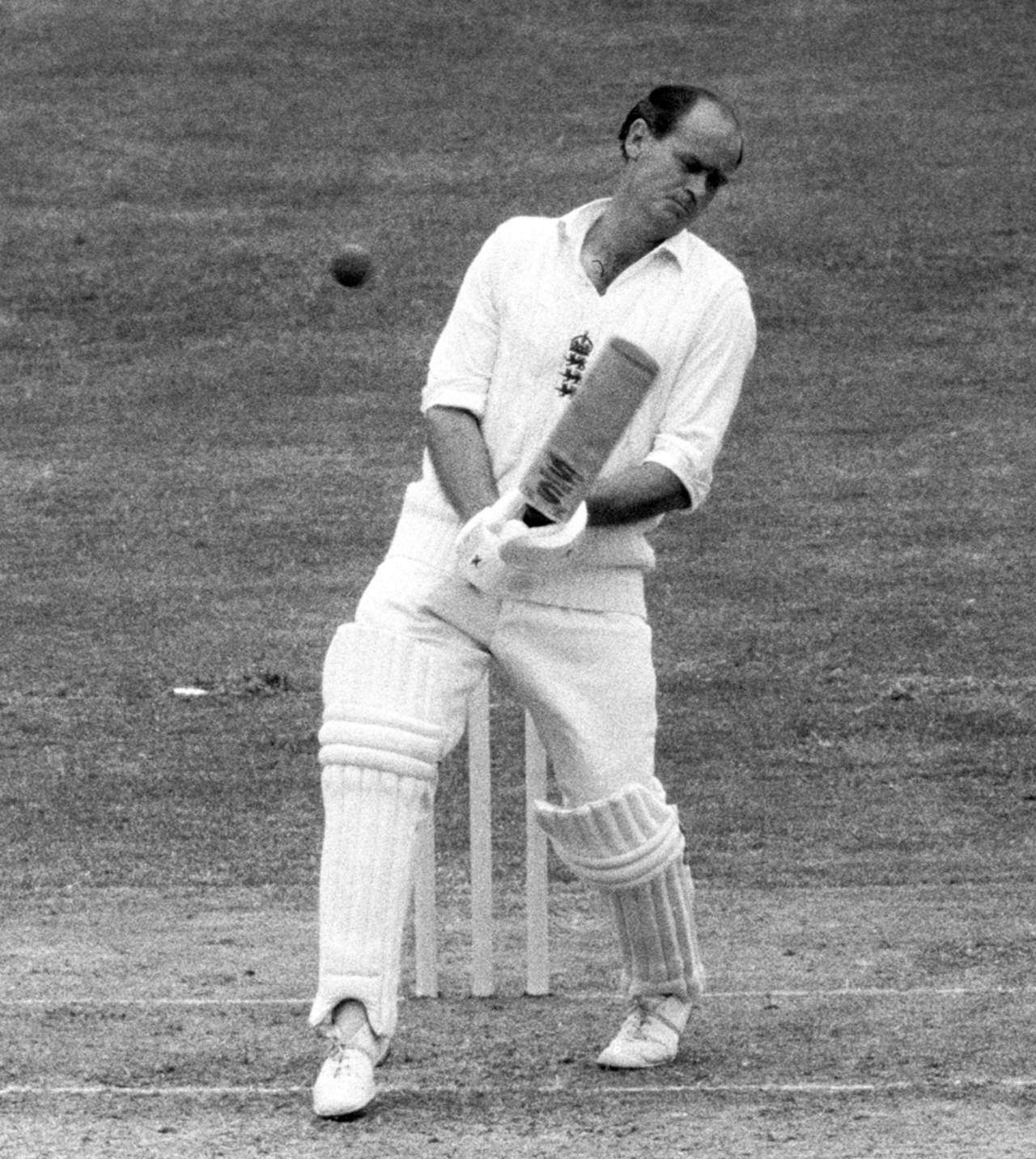Before the
Adelaide Test began, I tweeted a link to
this video of
Brian Close facing
Michael Holding at Old Trafford
in 1976, with a line saying that England's batsmen should watch it before they walked back out into the Australian guns. I got a reply saying that, as Close had only made 20 and England lost by 425 runs, there were probably some more inspiring videos about.
As a statistical point it was inarguable, and it made me wonder why some small acts in the game's vast history endure, when others, which dwarf them by numbers, fade from view. The six innings that Close played in the scorching summer of '76, three Tests in which he made 166 runs at 33.20, not only confirmed his legend within the game but took him out into the wider public in a way that sustains him in the imagination. He even became the subject of a famous joke by Morecambe and Wise - "I always know it's summer when I hear the sound of leather on Brian Close."
That 20 at Old Trafford was Close's final Test innings, bookending a career that began at 18 and ended at 45. Only Wilfred Rhodes has had more time between his first Test and his last.
The brutality that Close confronted at Old Trafford is only hinted at on film and in the sonorous declamation from the Almanack: "The period before the close of the third day brought disquieting cricket as Close and Edrich (his opening partner) defended themselves against fast bowling which was frequently too wild and hostile to be acceptable."
On a decaying wicket it was both awesome and terrible in its ferocity, and the batsmen displayed sporting courage of the highest kind. Close survived 108 balls and almost three hours, at one point facing Holding for more than 40 minutes without a change of ends. He refused to be broken by the onslaught, or by the hopeless situation of the match - England had been bowled out for 71 in their first innings, with Woolmer and Hayes dismissed by balls that Wisden records as "unplayable" and Greig and Underwood having "narrow escapes from what could have been serious injury". They were 552 behind when Close and Edrich went in for a second time. It was heroic in its way, defiant and brave and doomed, and it's hard not to be moved by the sight of it.
Mike Selvey sensed that Cook's England were facing pace that echoed a previous era, in a brilliant piece for the
Guardian about
Greg Chappell's method during the Packer years.
In West Indies for the WSC's only tour, Chappell took
620 runs from an attack that read: Holding, Roberts, Croft, Garner and Daniel. Chappell's maths was an insight into the task: 12 overs an hour, 72 deliveries, of which roughly 48 - four per over - would be short-pitched, leaving 24 that landed in the batsman's half. Chappell and his partner might receive 12 each. Of those, he'd probably have to defend six, leaving another six for which he could potentially come forward and score. You need a certain mindset to accept those odds and turn them to your advantage.
Selvey made his debut in Close's Old Trafford Test, taking the wickets of Roy Fredericks, Viv Richards and Alvin Kallicharran in his first 20 deliveries. Here's how he
remembered the onslaught: "From the Old Trafford dressing room, side on to play, it was almost impossible to follow the flight of the ball from hand to the gloves of Deryck Murray."
When his turn came to face Holding: "He reached the crease, and the ball flew from his hand. A split second later, the ball exploded from the middle of my bat and ricocheted (there is no other word for it) back past the bowler, and we scampered two runs. It even drew some applause. The thing was, here was a bowler of such purity that you never lost sight of the ball, yet who could propel it at such velocity that although in vision all the time, it was too fast for the reaction of someone of my capabilities."
Close, even at 45, was good enough to face it for three hours on a dangerous pitch. He only made 20 runs, but they have a value beyond statistics. They are about the meaning of competition; they uphold the purity of sport. I still think England should watch it: at least they would walk out next time knowing that they are not alone.

